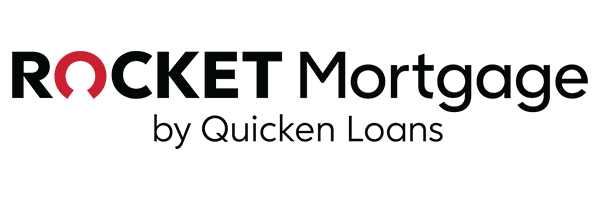Online Mortgages
Online lenders are not all the same. Some have different digital tools, some have lower rates. Borrowers aren’t all the same either, so check out different lenders to determine which one is the best for you.
Getting a mortgage is complicated, no matter what your financial situation is. The prospect of making it easy and fast is something that appeals to everyone and online mortgage lenders say that’s exactly what they do.
As the world gets more digital, online mortgage lenders are proliferating, and even established traditional banks are jumping into the game.
But what are online mortgages really about? Mostly convenience, with the possibility you’ll get better terms than you would at banks or credit unions. Consider the information here a start, with a snapshot of some of the top lenders and other tips that’ll help you decide if online mortgage lending is for you.
Even if you want the most painless mortgage process possible, doing some work will save you money. Knowledge is power, especially when it comes to your pocketbook. Find out as much as possible about what’s available, as well as about your financial situation before filling out an application with an online lender.
Also, consider what’s important to you aside from ease of process. All online mortgage companies aren’t the same. What’s good for one customer may not be good for another.
Best Online Mortgage Lenders
You may just want to deal with a mobile app, or you may find comfort in knowing you can call someone up to talk to.
Here’s a look at some of the top online mortgage lenders:
Choosing the Right Online Mortgage Lender
There’s more to finding an online mortgage lender than picking one through a Google search or TV commercial. Homework involves not only assessing the lenders, but also understanding your financial situation. You should also think hard about what you want out of the experience, even things you may not have thought of before.
For instance, J.D. Power reports that overall satisfaction scores for mortgage lenders are an average 140 points higher when customers can have real-time access to the status of their loan online. That’s an option that you may not think about until you’re wondering about the status of your loan.
Some questions you might want answered:
- What digital tools do you think you’ll use?
- What kind of information do you want, and when do you want it?
- Are you comfortable chatting online, or would you rather talk to someone on the phone, or communicate through email?
Those are all things to think about.
Research Your Options
Once you’ve researched rates, digital tools and the other general elements of lenders, It’s time to dig down and really look at the ones you’re interested in.
Seeking out online reviews can help. A good place to start is the reviews with the fewest stars. Read the negative comments and ask yourself if the issues the reviewers had are issues that would bother you, too. While we all know it’s easy to troll online, if there are a number of negative reviews by reviewers who all had a similar experience, take it seriously.
Checking the Better Business Bureau and Federal Trade Commission websites is also a good go-to when you’re doing business online.
The BBB has reviews for more than 12,000 lenders, rating them from A+ to F. The ratings are the BBB’s opinion of how the business is likely to interact with its customers, based on information it’s able to get, including customer complaints and from public data sources. While customer reviews aren’t factored into the rating, it does have reviews on its site, as well as customer complaints that both the BBB and the lender respond to.
The Federal Trade Commission website, rather than offering information on specific lenders, gives general advice on things like how to spot deceptive ads, how to compare offers and how to deal with mortgage discrimination.
Know Your Budget
The other side of the coin is you. Specifically, your finances. Whether you’re getting a loan online, or even going downtown to the bank, be sure to make managing your budget a part of the process.
Knowing how much you can spend a month is the foundation for how much you want to borrow. This not only includes the amount of the loan, but the interest rate, since that will make that figure much bigger over the life of a 30-year mortgage. Be sure to look for ways to get the best interest rate.
So, don’t think of the loan in terms of the total you’re borrowing, think of it in terms of how much you’ll pay a month.
A good source for checking rates is HSH.com, which has a variety of online calculators to help you figure out how much you can afford. Many of the lenders also have online calculators.
Online Application
It’s important to keep an eye out for unnecessary fees. For instance, you shouldn’t have to pay anything upfront for an initial quote.
Once you apply, there will likely be fees, but they are often lower than a traditional lender, because online mortgage companies have less overhead. Still, finding out what those fees are and comparing them to other lenders should be part of the research process.
You’ll fill out forms online, but that doesn’t mean you don’t have to pay as much attention to what you’re doing. Misunderstanding directions or putting in wrong numbers can hurt your chance for the mortgage or cause you to pay more interest than you need to. Many of the mortgage companies have 800 numbers, but they aren’t manned 24 hours a day, so be sure to set aside a time to fill out the forms when you know you can get help if you need it.
Consider Preapproval
One way to compare a variety of online lenders is by getting a mortgage preapproval. The lender will look at your finances and credit history and determine if you’re a good mortgage candidate, and how much you can expect to borrow. Some online lenders charge a fee for this, some don’t. Some have a variety of options.
All of them will pull your credit score, but don’t worry about its effect on your credit score. Credit-scoring firm FICO says multiple credit checks for loans that involve rate-shopping, including mortgages, auto and student loans, get some slack. If you apply for a loan within 30 days of the credit checks it won’t affect your score at all. If your credit score is pulled for multiple mortgage preapprovals within a 45-day period under FICO’s new scoring, and 14 days under the old scoring, it counts as one credit score pull. Lenders can choose whether to use the old or new scoring method.
You won’t need as much information for preapproval as you will for the actual mortgage, but the lender processing a preapproval will want to know how much money you make, and how much you owe, how much you have available for a down payment, investments and your employer.
You’ll also need this information, and more, for the actual application, so it’s good to gather it up and have it ready.
Preapproval will not only allow you to compare rates, but also compare customer service and how you like dealing with each company.
Get Your Finances in Order
If you have bad credit, a lot of debt or a low credit score, you may want to try to make your financial situation stronger, so you can get a mortgage, or a better deal on one.
If credit card debt is dragging down your credit score, you may want to consider a debt management service, which will get you lower interest rates on your credit card debt and combine it into a monthly payment, to help you pay it down faster. This will improve your debt-to-income ratio as well as strengthen your credit score.
The downside is that it can take three to five years to pay the debt off. Most lenders won’t care if you’re in a debt management program if your credit score and income-to-debt ratio is OK, but debt management companies advise those in the program not to take out loans while they’re still paying their debt off.
Online Mortgages: Pros and Cons
Applying for a mortgage online has benefits, particularly for those with low income or credit scores and are looking for better rates and fewer fees. Digital tools also make it easier and faster to apply.
But online mortgages also has its downsides:
- Rates on some apps aren’t available until after application.
- Rates can also change quickly and without notice.
- If you want to talk to a human being, either to ask questions or get help with an application, you may find it harder to connect with one at some online mortgage companies.
- As always with anything online, there’s also a greater risk of fraud. Before you start giving out your financial history, Social Security number and more, know who you’re giving talking to.
People who are self-employed, own a business, have complicated finances or are buying a home that has issues that will impact the purchase, may want to deal directly with a bank.
If you have a relationship with a bricks and mortar lender, dealing with an institution you have a comfort level with may be a plus, and some offer special rates for customers. Many banks also offer online tools as competition grows.
Sources:
- N.A. (ND) Better Business Bureau, Category: Mortgage Lenders. Retrieved from https://www.bbb.org/us/category/mortgage-lenders
- N.A. (ND) Federal Trade Commission Consumer Home Loans. Retrieved from https://www.consumer.ftc.gov/topics/home-loans
- Davis, S. (2019, March 5) Should You Use and Online Mortgage Lender? Pros and Cons of Online Mortgages. Retrieved from: https://www.moneyunder30.com/online-mortgage-lenders-vs-brokers-10571
- Stanger, T. (2019, January 31) How to Save Money on Mortgage Fees. Retrieved from https://www.consumerreports.org/mortgages/how-to-save-money-on-mortgage-fees/
- N.A. (ND) Credit Checks: What are credit inquiries, and how do they affect your credit score? Retried from https://www.myfico.com/credit-education/credit-reports/credit-checks-and-inquiries






